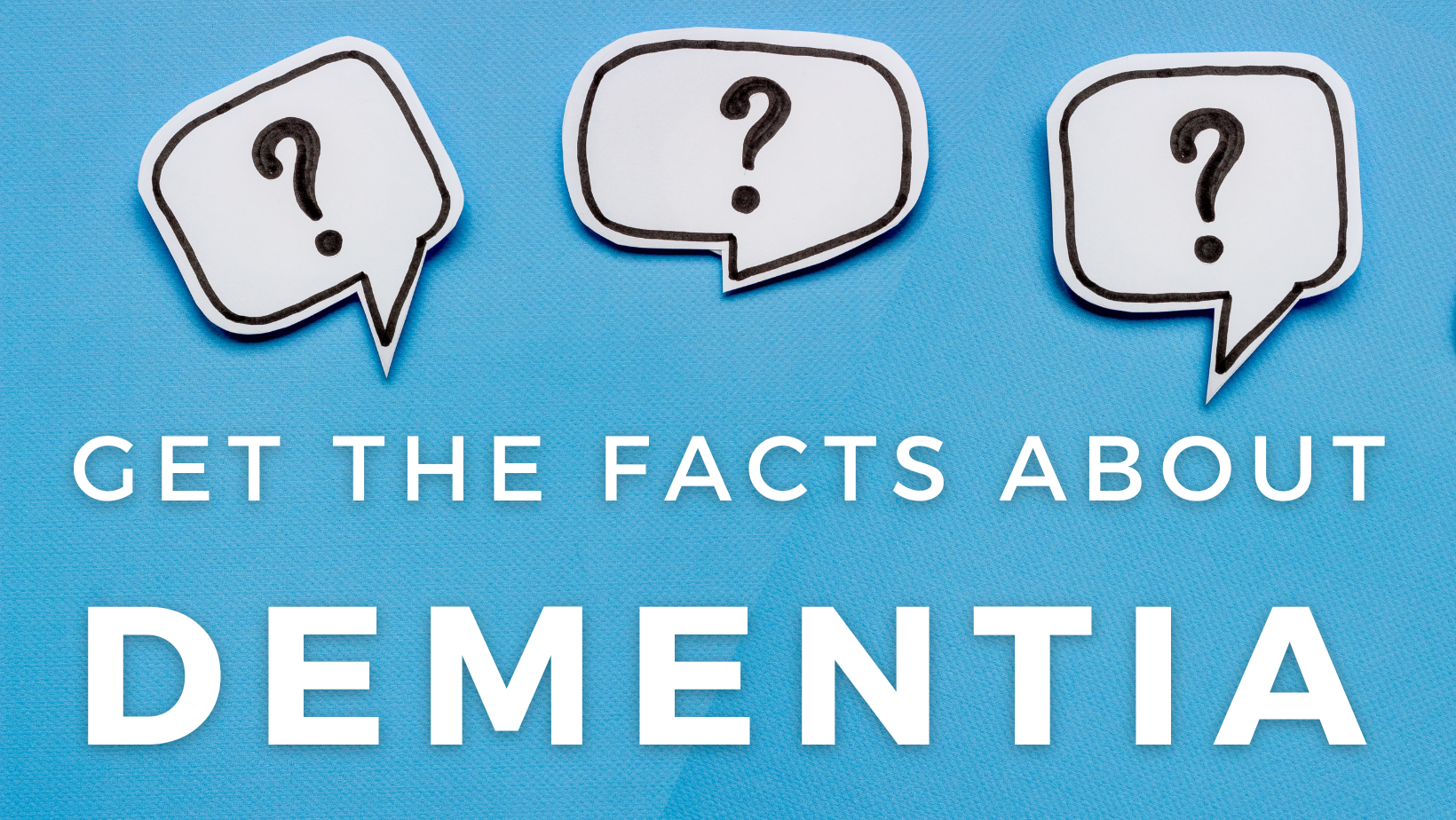Did you know? In 2023, an estimated 6.7 million Americans age 65 and older were reported as living with dementia, and some sources have expected this number to grow to 13.8 million by 2060. With such a staggering growth rate, it would be safe to assume that almost every person has been or will someday be impacted by dementia in one way or another. Therefore, it has become vital to understand the facts regarding this disease so that no misconceptions might get in the way of you or someone you love from receiving prompt and sufficient support. So, fire up your defenses and test your knowledge of dementia with a few quick true or false questions.
True or False: Alzheimer’s disease and dementia are the same.
FALSE. While commonly associated with one another, Alzheimer’s disease and dementia are not the same exact thing. Instead, dementia is a general term used for a decline in cognitive abilities that includes memory loss and thinking difficulties. In comparison, Alzheimer’s is actually a type of dementia and the most common one at that. In fact, according to the CDC, the number of people living with Alzheimer’s disease doubles every five years beyond age 65.
True or False: Memory loss is NOT the only sign of dementia.
TRUE. While memory loss is the most common symptom associated with dementia, it is not the only one. Other factors to watch out for include difficulties in planning, problem-solving, completing simple or familiar tasks, understanding visual and spatial relationships, speaking, writing, and judgment-making. Changes to emotional and mental health, such as sudden agitation or aggression, might also be a marker for dementia.
True or False: Women are at a higher risk for dementia.
TRUE. Studies from Harvard Health have found that Alzheimer’s disease is almost twice as common in women compared to men. Scientists believe this may be due to a combination of different factors, such as structural and biological differences in the female brain, the impact of menstrual periods and menopause on the body, and even social and economic influences compared between being in the workforce versus homemaking.
True or False: Dementia is only an age-related disease.
FALSE. Although the risks of developing dementia become greater as we grow older, there are, in some cases, populations who have or will develop the condition regardless of their age. According to the Alzheimer’s Association, some people have a chance of developing young or early-onset Alzheimer’s based solely on genetics or even lifestyle choices. For example, the Alzheimer’s Society states that people with Down’s syndrome are considered more likely to develop dementia when they are younger.
Did You Know?
Oakwood Creative Care is bringing back the JOY in aging! We believe a diagnosis should not have to define your life. Instead, we have devoted our mission to reigniting hope for caregivers and older adults with Alzheimer’s, dementia, and other age-related challenges. Click the button below to learn more about how we do this through our research-based, cutting-edge, creative care model found at each of our Day Clubs.




